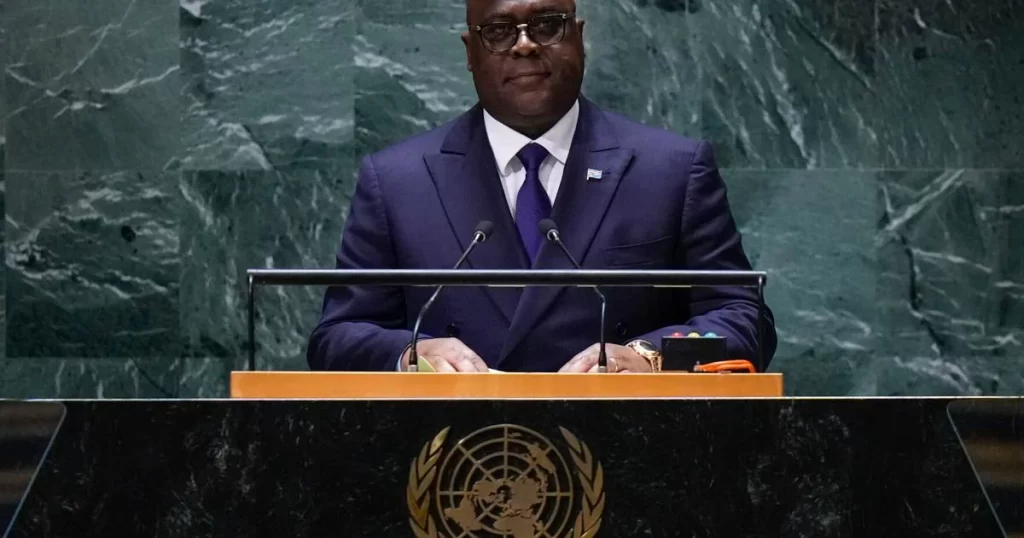
Congo’s president wants the world’s second largest United Nations peacekeeping force to move up its departure from the country, starting this December, saying it has failed to rein in conflicts in the country’s east.
President Felix-Antoine Tshisekedi in an address at the annual United Nations gathering of world leaders on Wednesday accused the 17,000-strong peacekeeping mission of being unable to confront the fighting in eastern Congo that is “tearing apart” the central African nation.
After a quarter-century of peacekeeping efforts, “it’s time for our country to take its destiny fully in hand” and become the leading security force in Congo, he said. How Congo’s estimated 100,000-strong military will adapt to the challenge is not clear.
Moving up the start of the peacekeeping mission’s “accelerated retreat” by a year, from December 2024, will help ease deadly tensions in the region, said the president, who is seeking a second term in a general election in December.
Eastern Congo, far from the capital, has long been overrun by dozens of armed groups seeking a share of the region’s gold and other resources. Some have been quietly backed by Congo’s neighbors. U.N. experts have noted “substantial evidence” that Rwanda is supporting the resurgent M23 rebel group, which Rwanda has denied.
Such protests have been common. A visit by Pope Francis to eastern Congo planned for early this year was canceled because of the worsening security situation there.
“In the past year, the political and security environment has deteriorated sharply, creating a severe humanitarian and protection crisis,” said a report last month by the U.N. secretary-general discussing options for the peacekeeping mission’s withdrawal.
As the U.N. mission withdraws, more pressure is likely to fall on a separate, much smaller East African regional force in eastern Congo which has seen citizen protests as well. Earlier this year, the Southern African Development Community also decided to deploy forces to eastern Congo.



